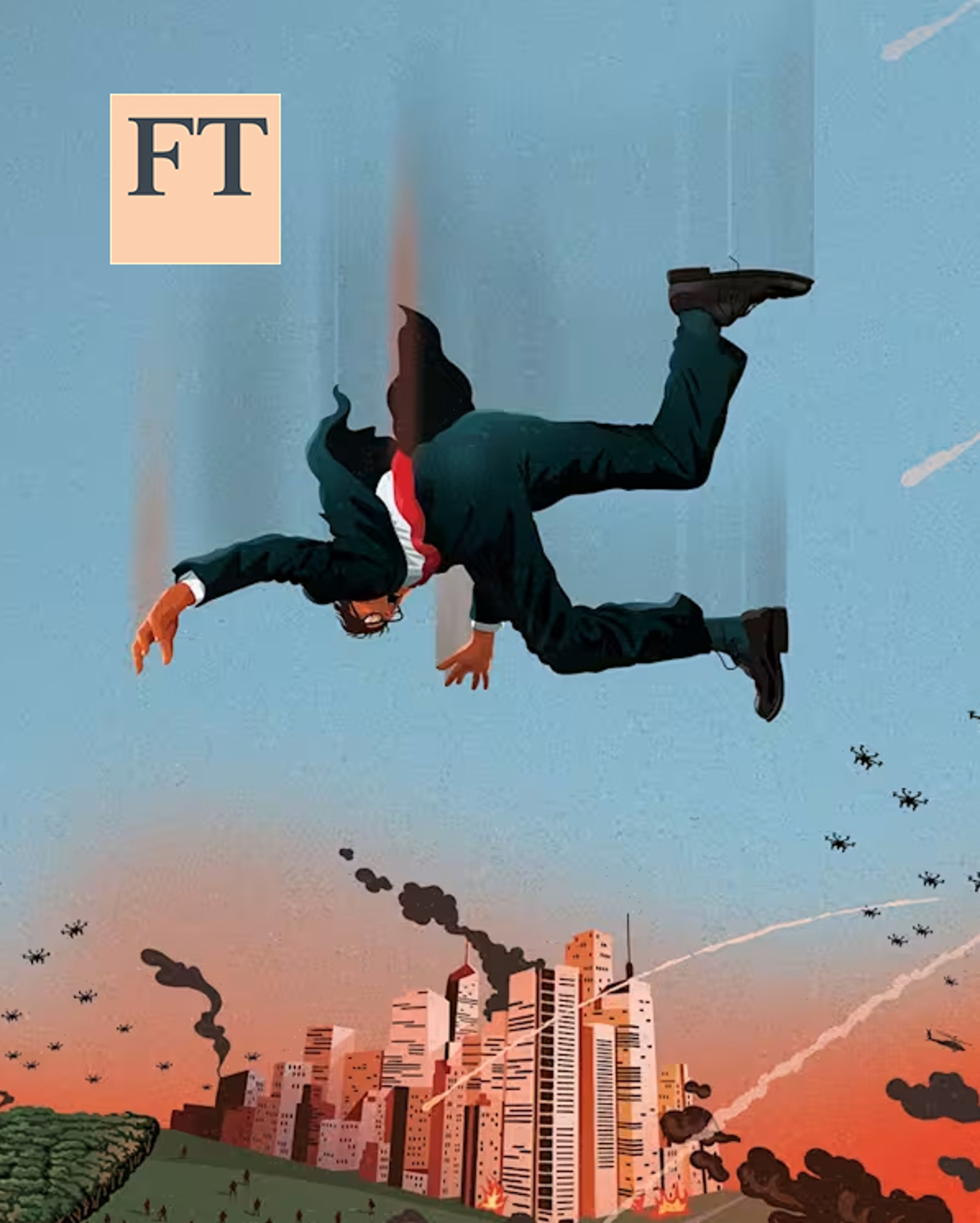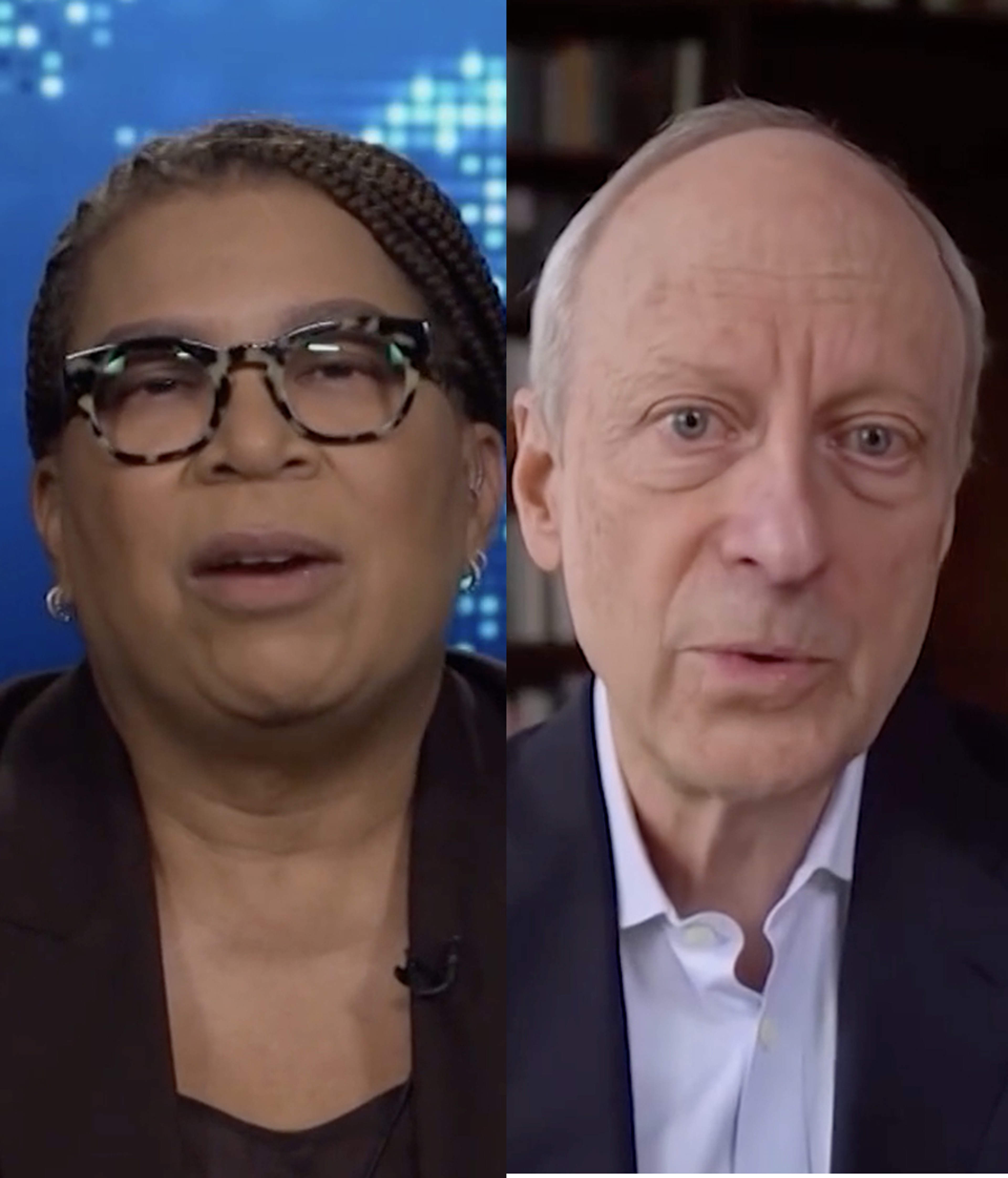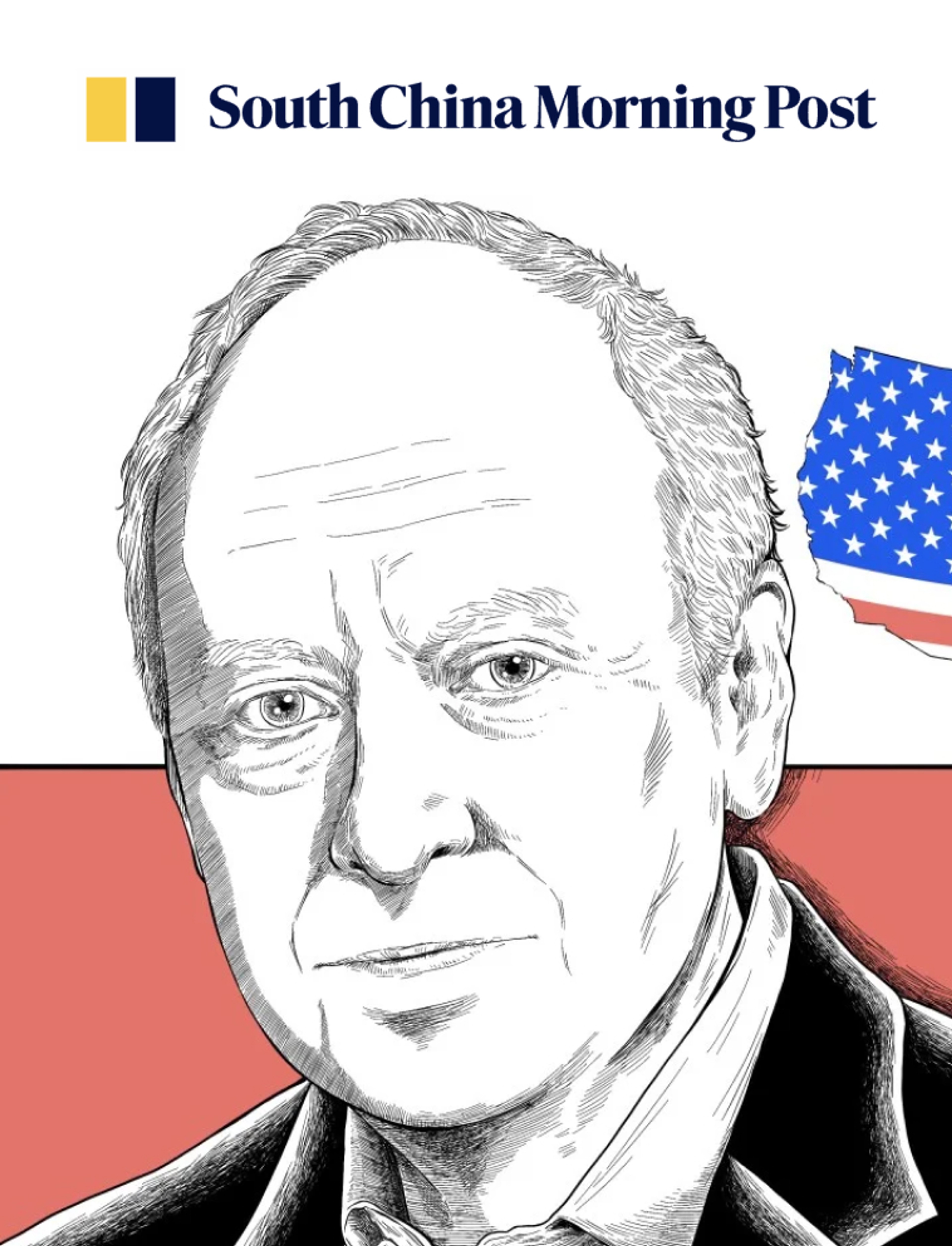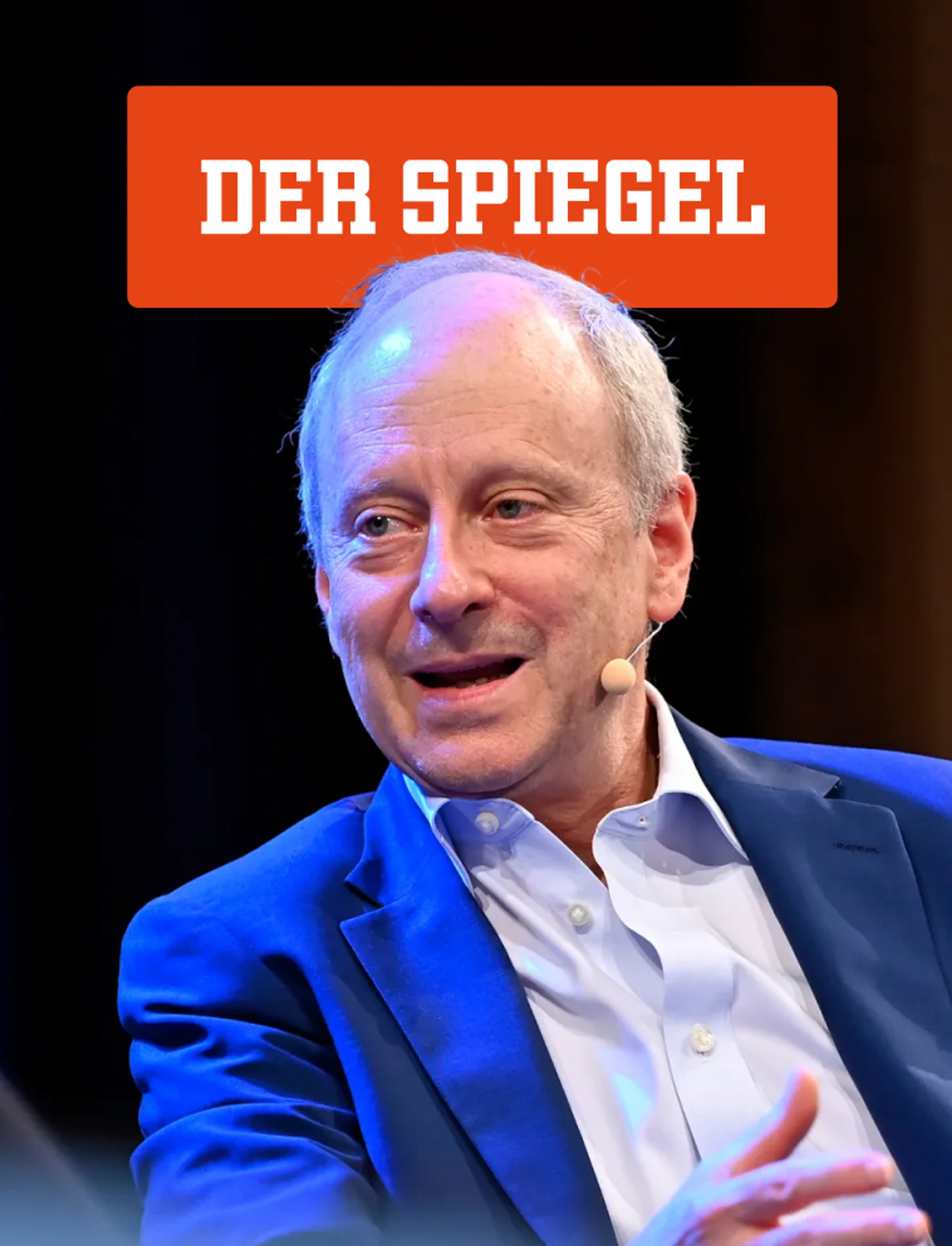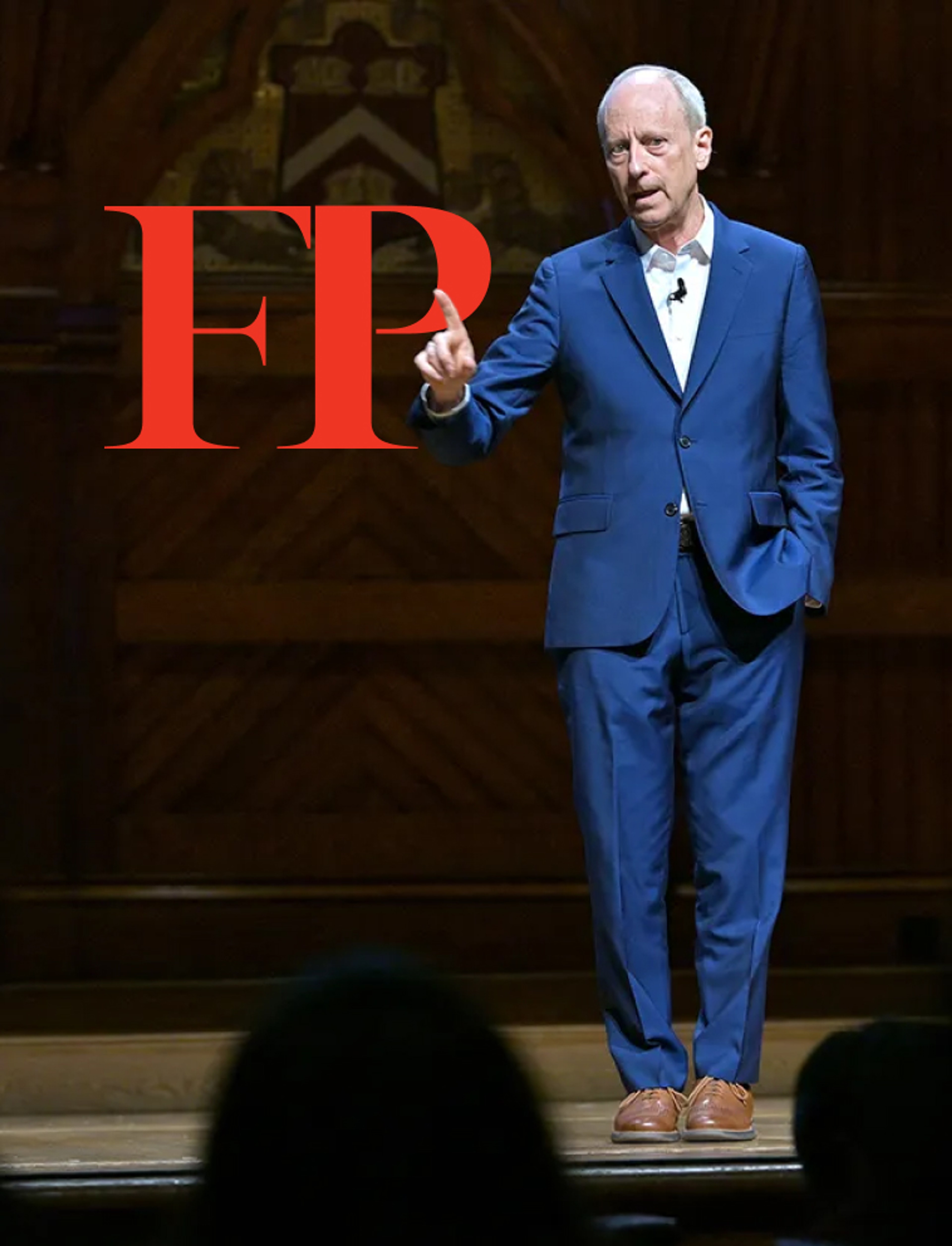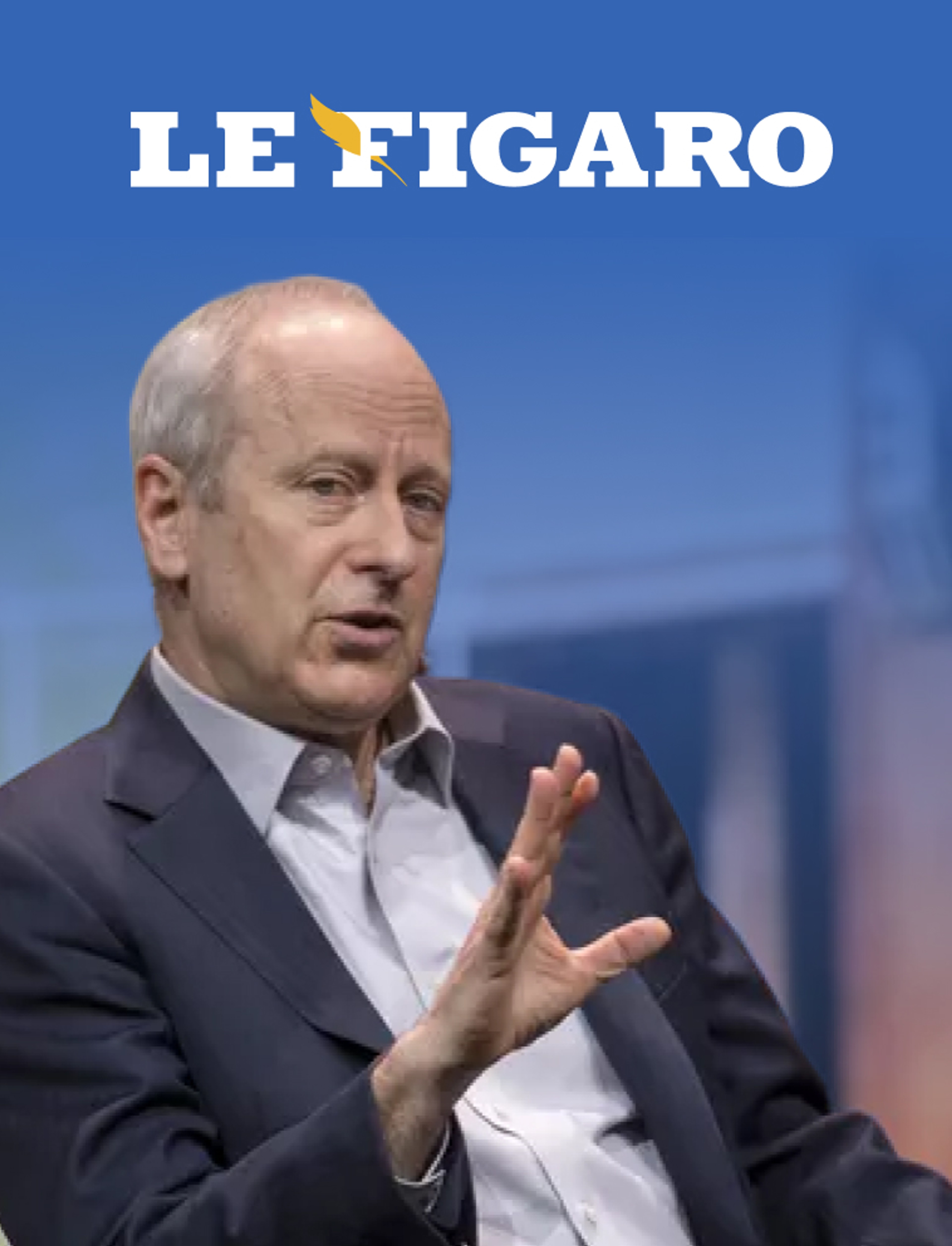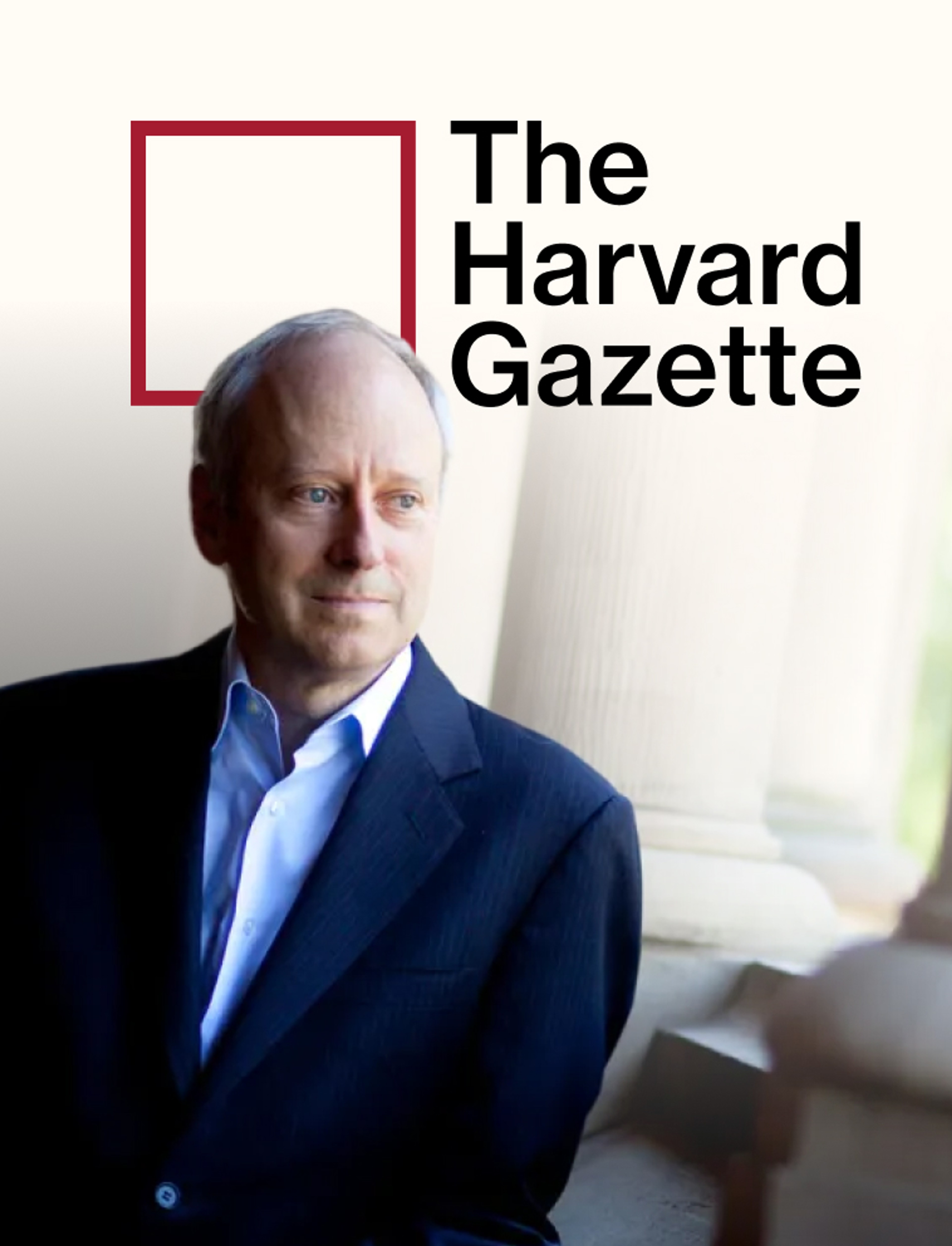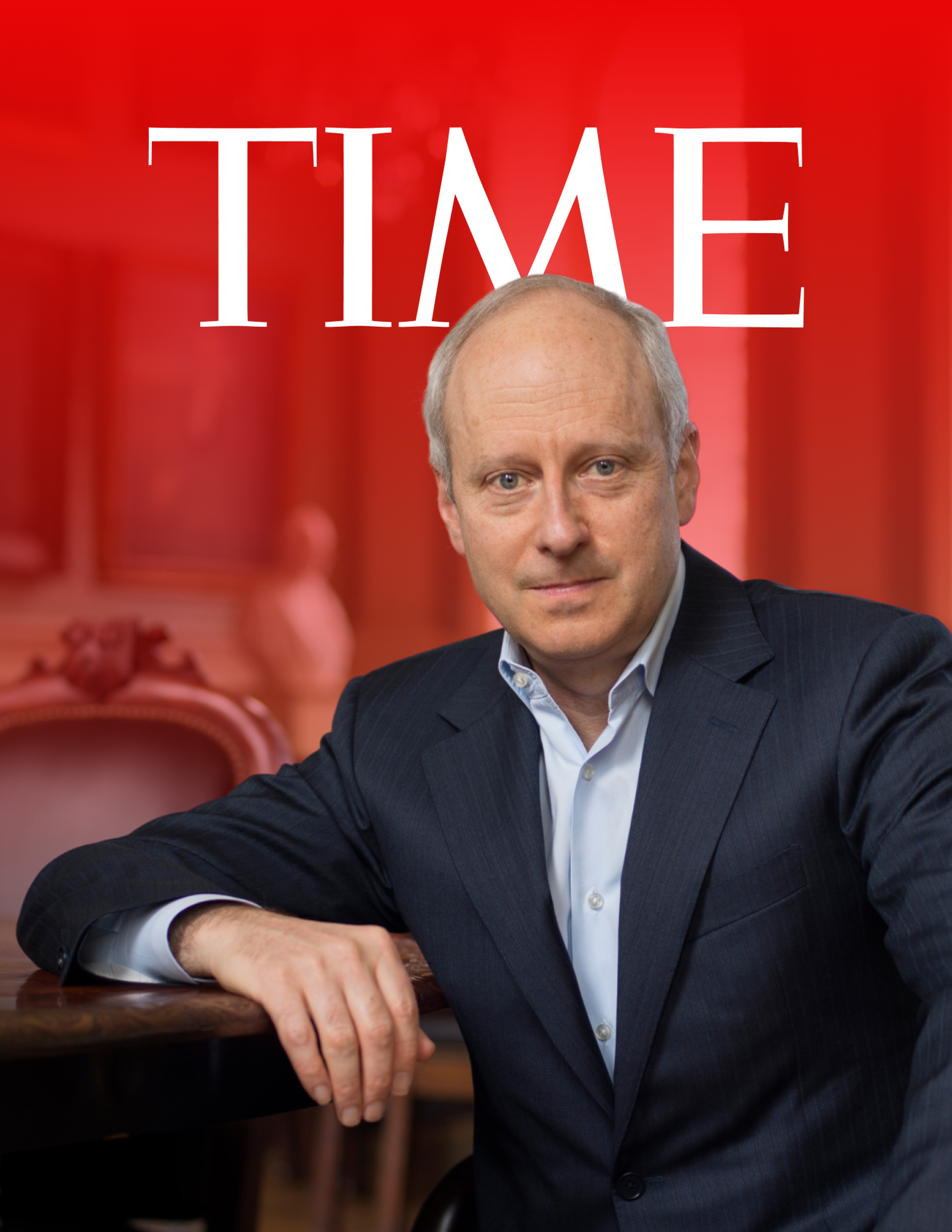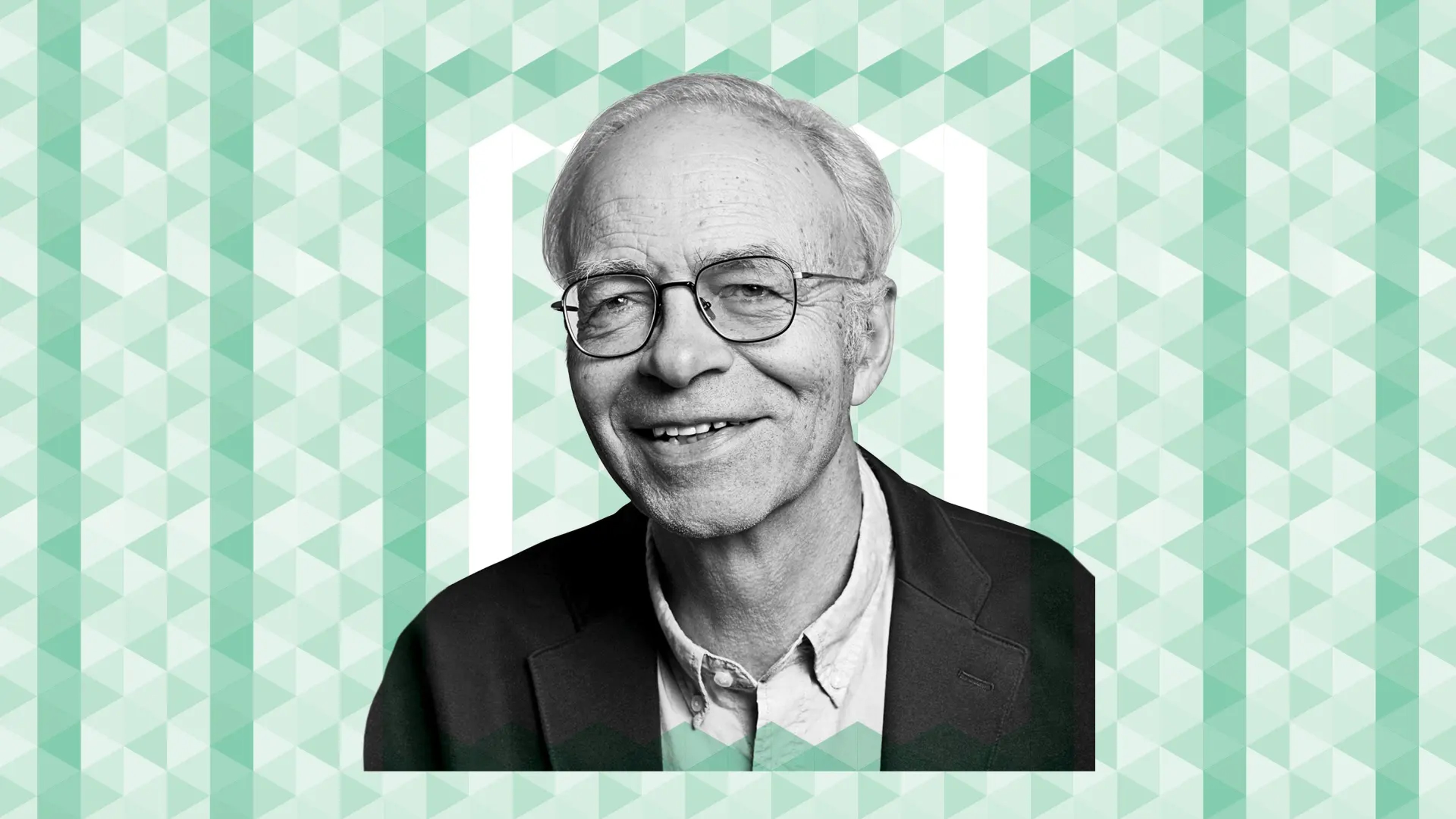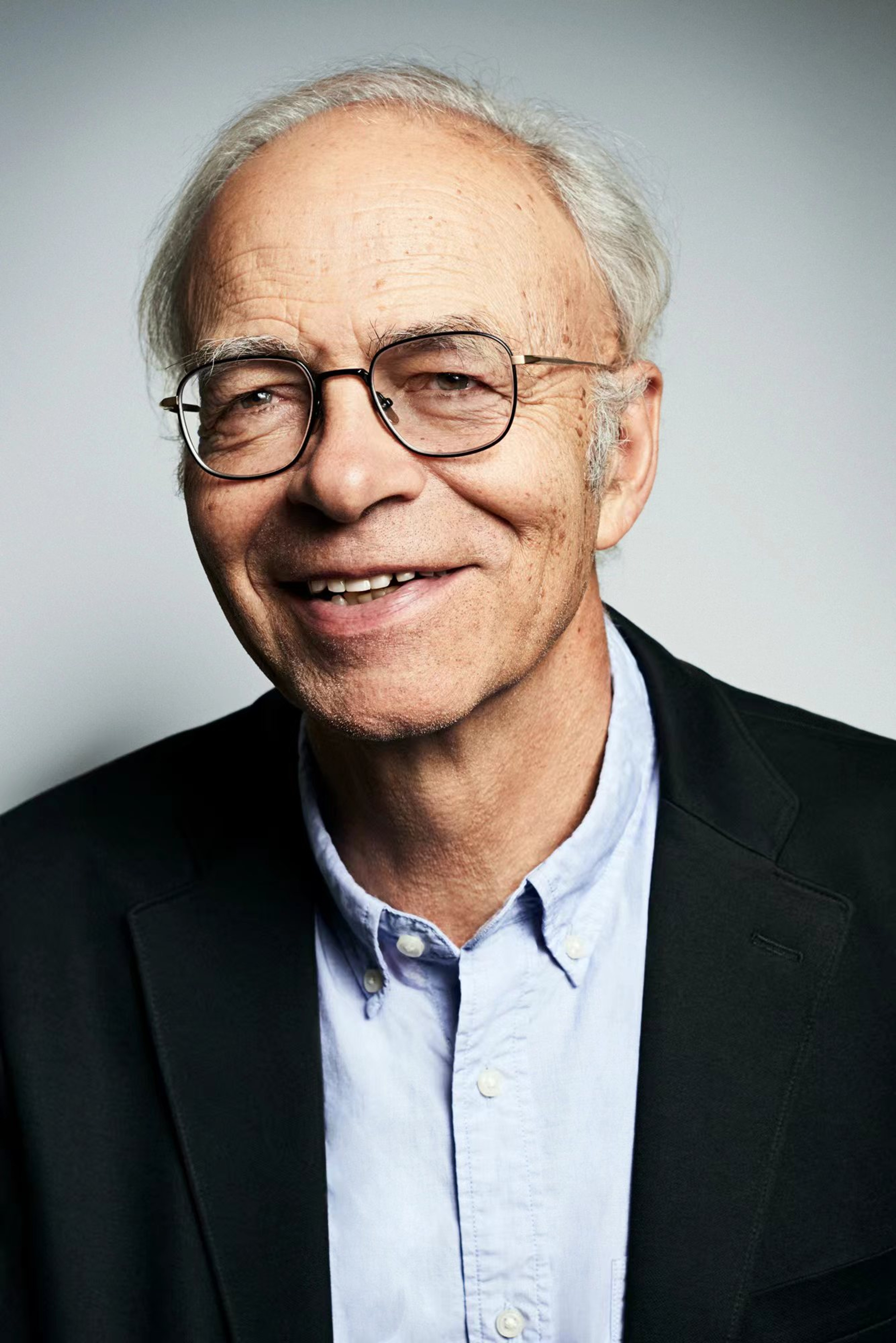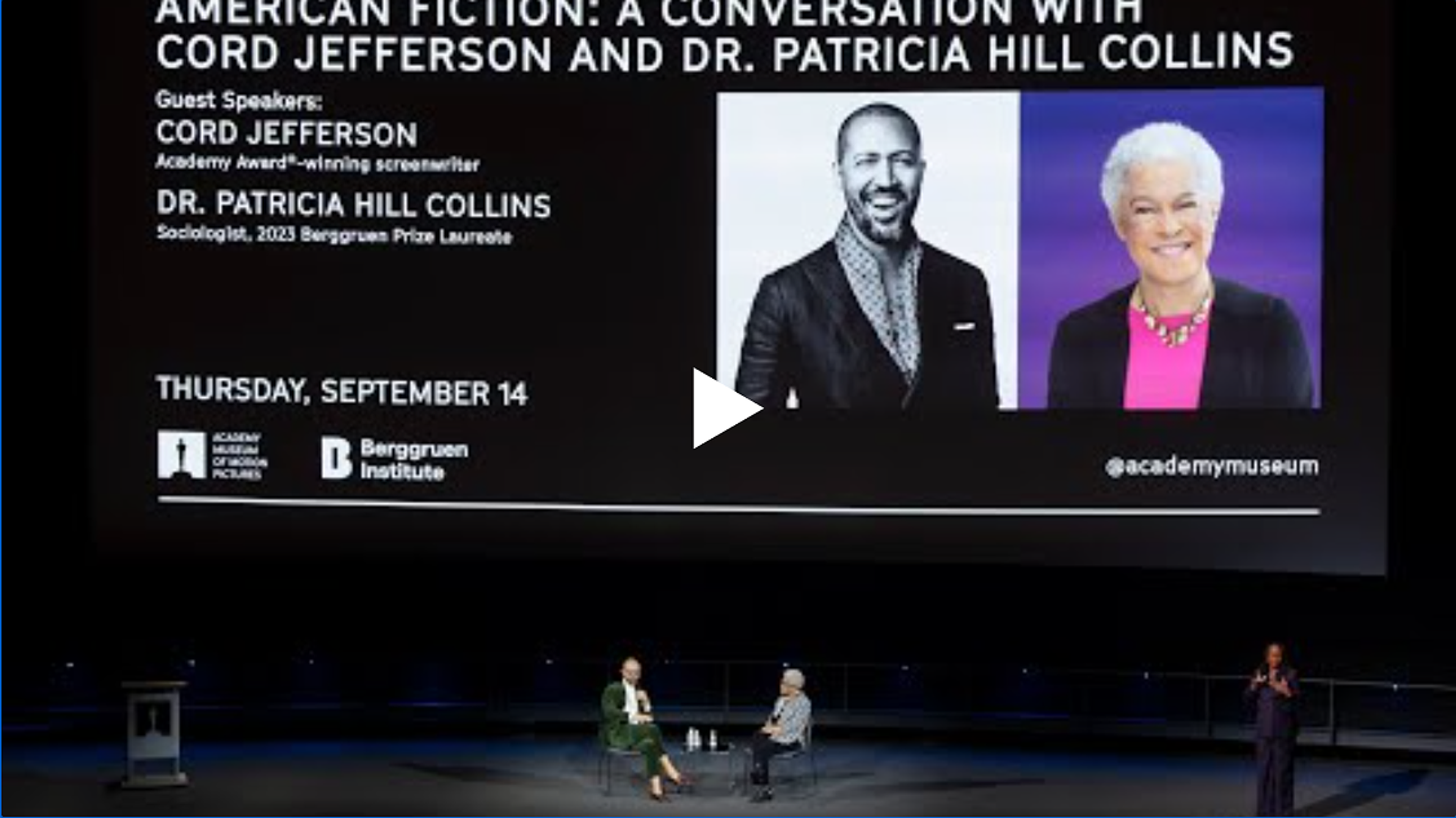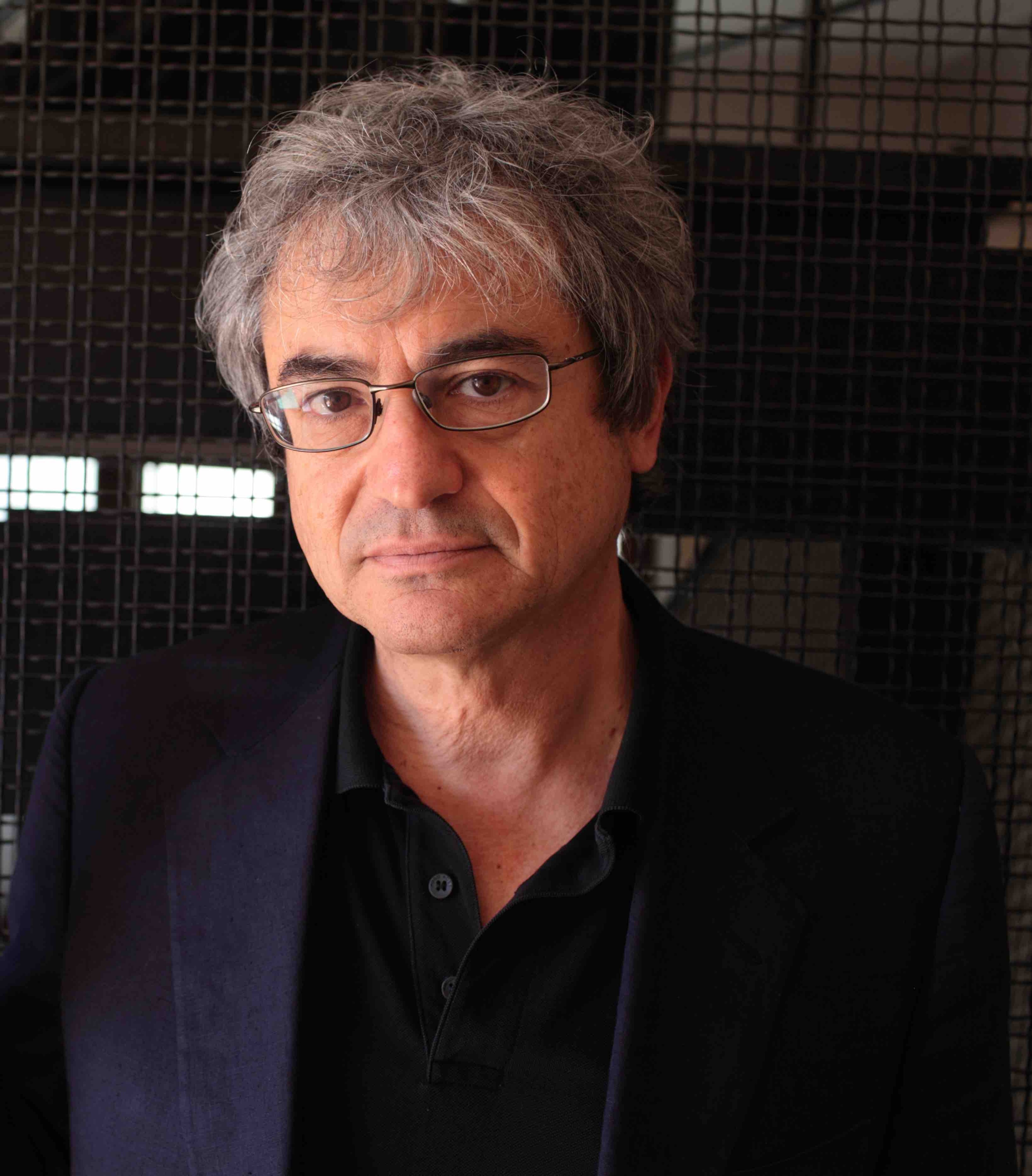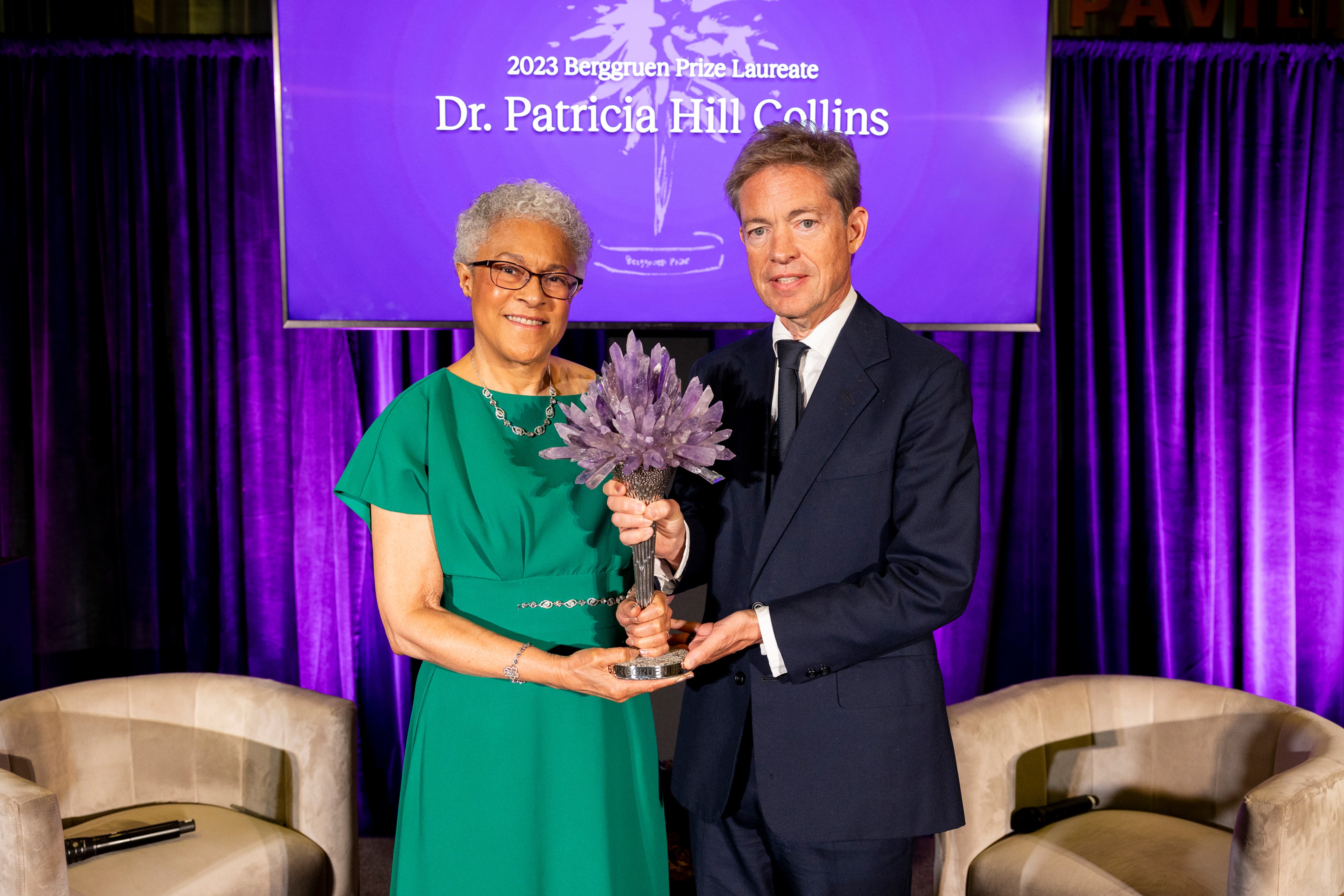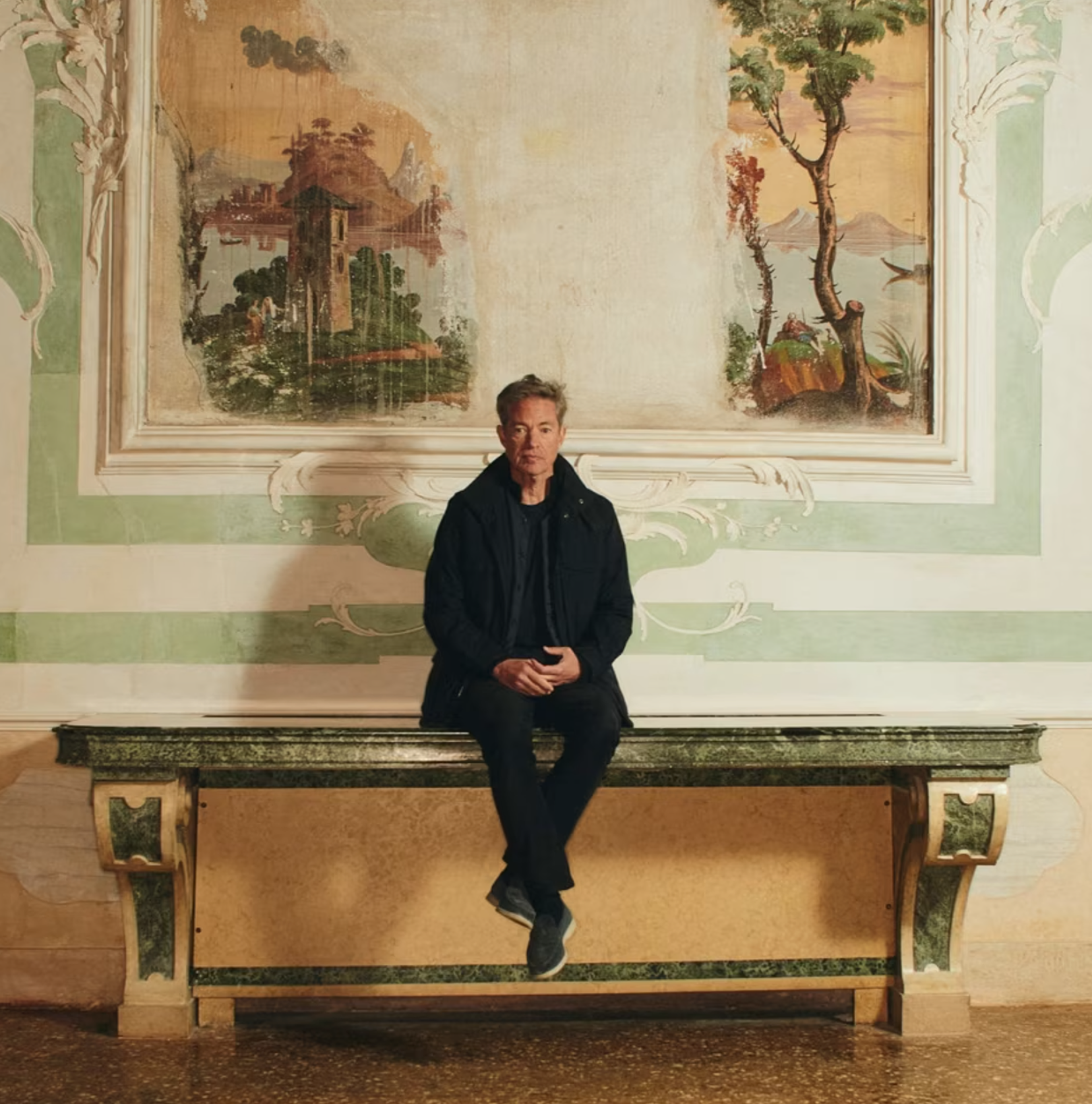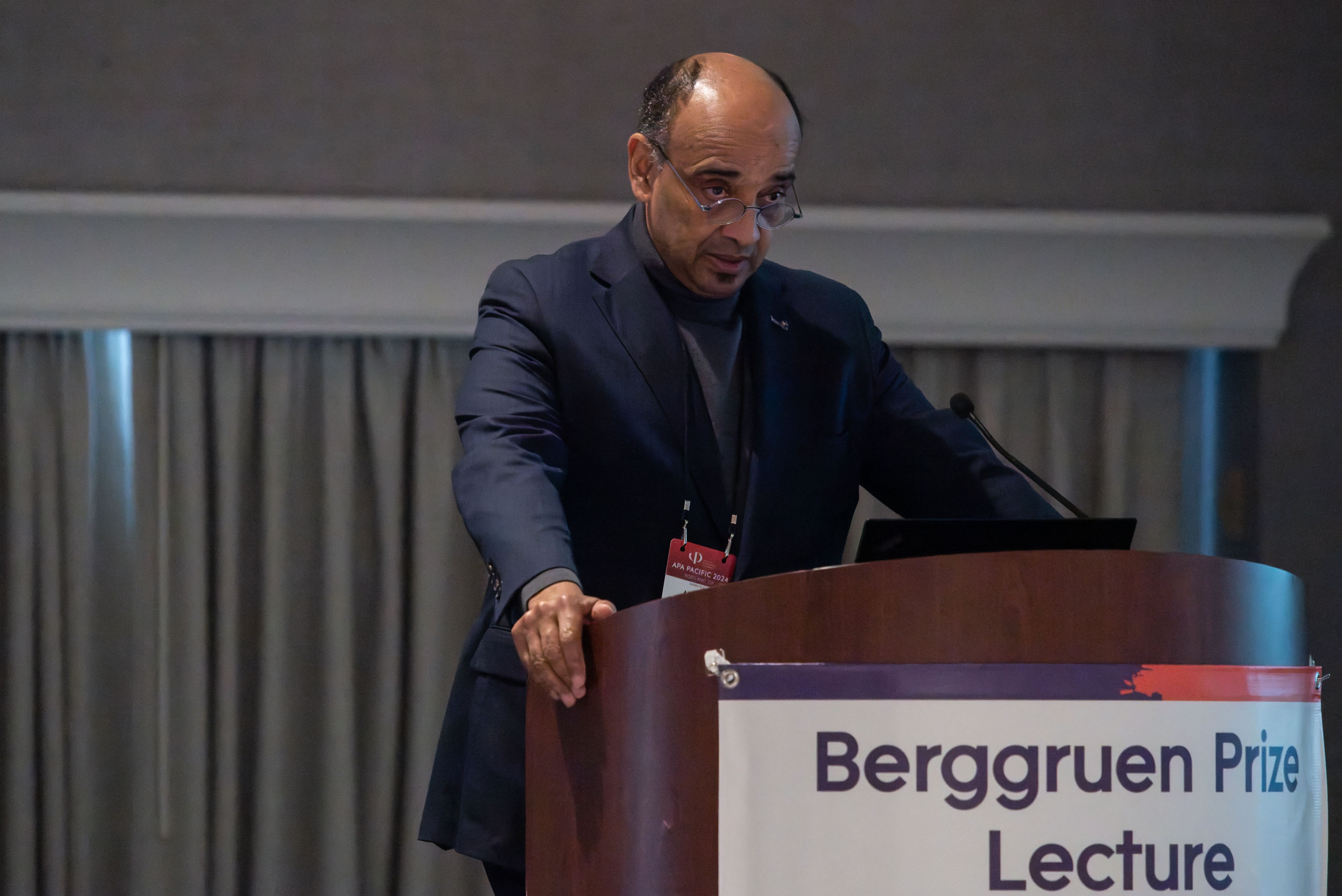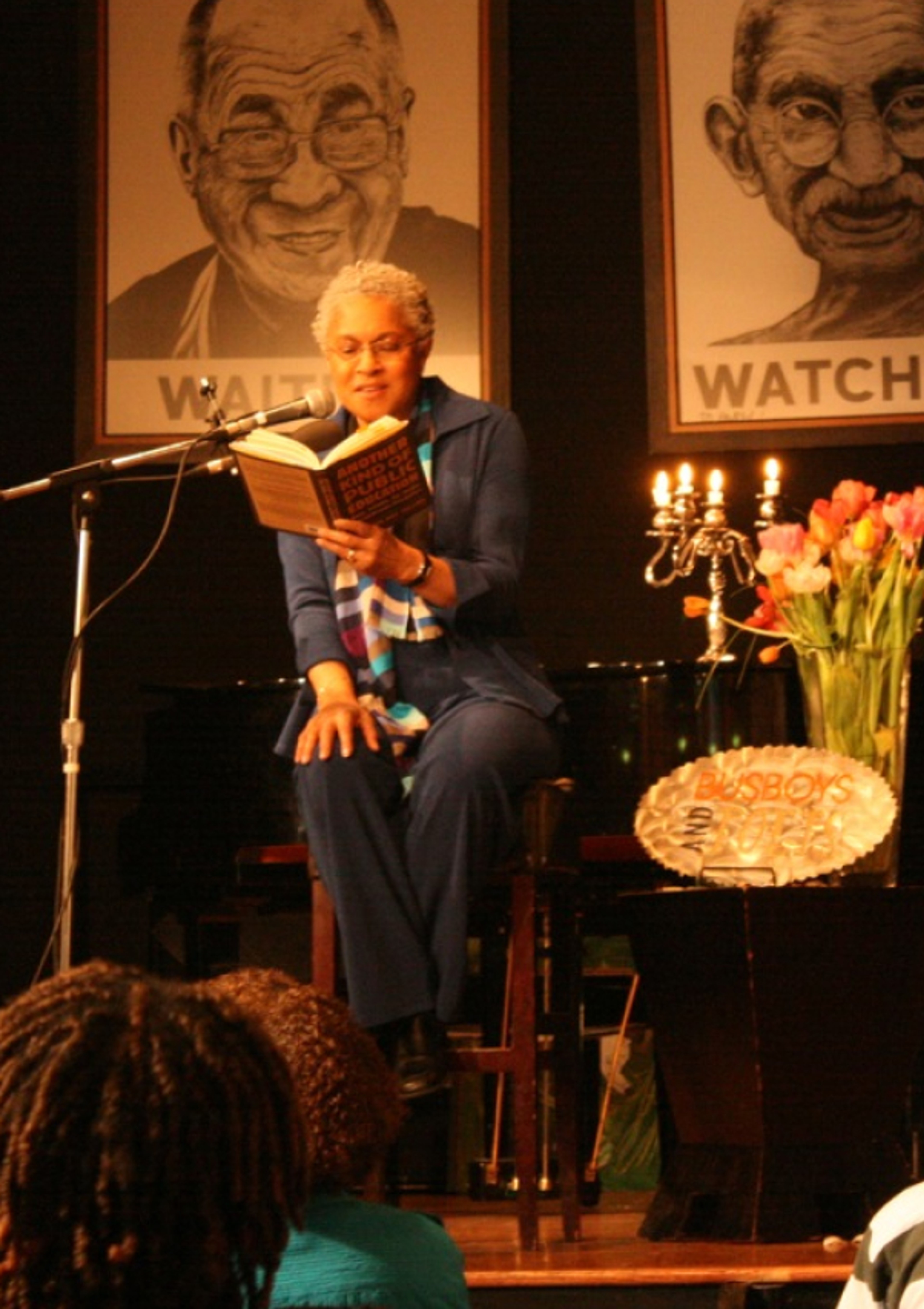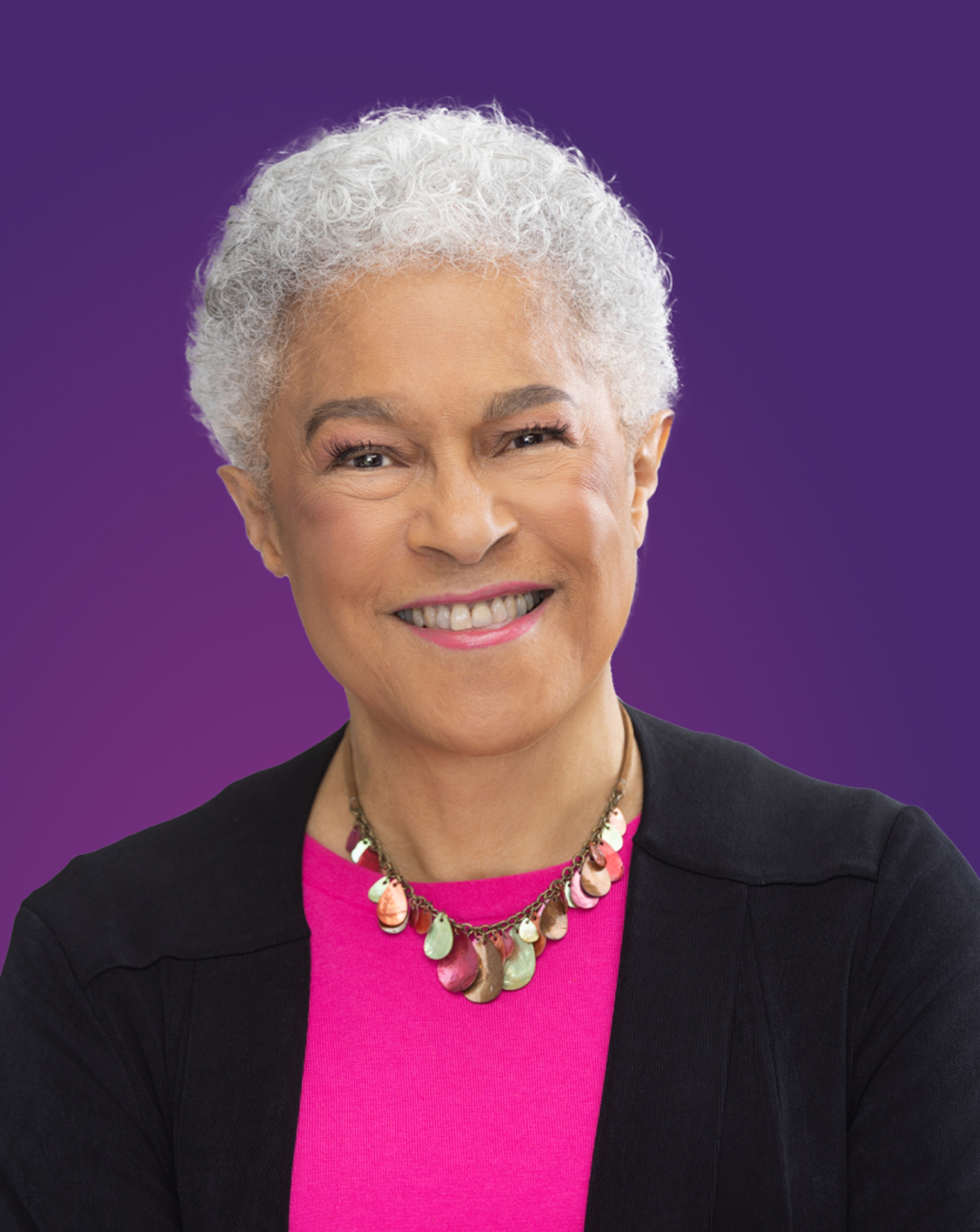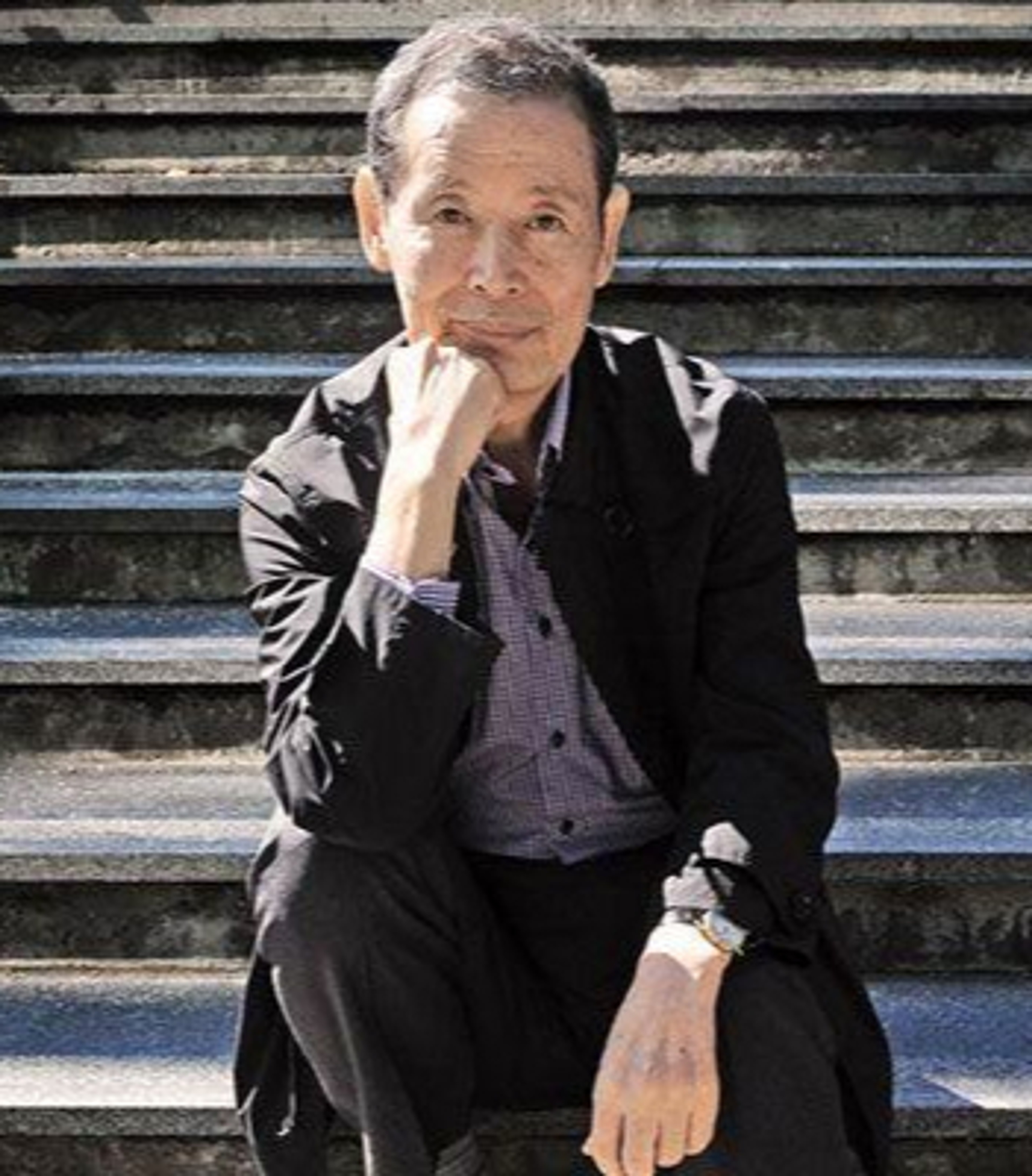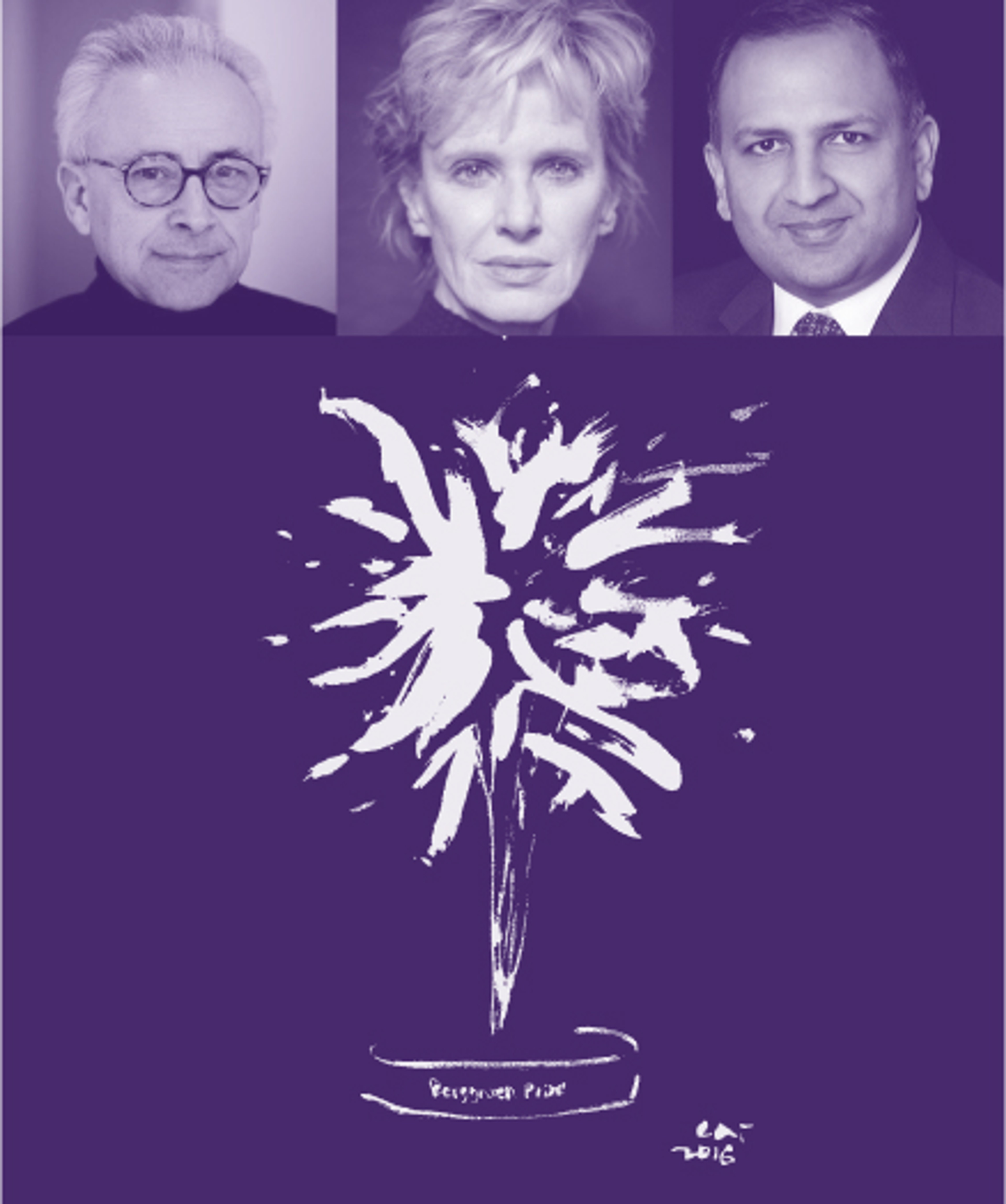$1 Million Berggruen Philosophy Prize Awarded to Michael Sandel
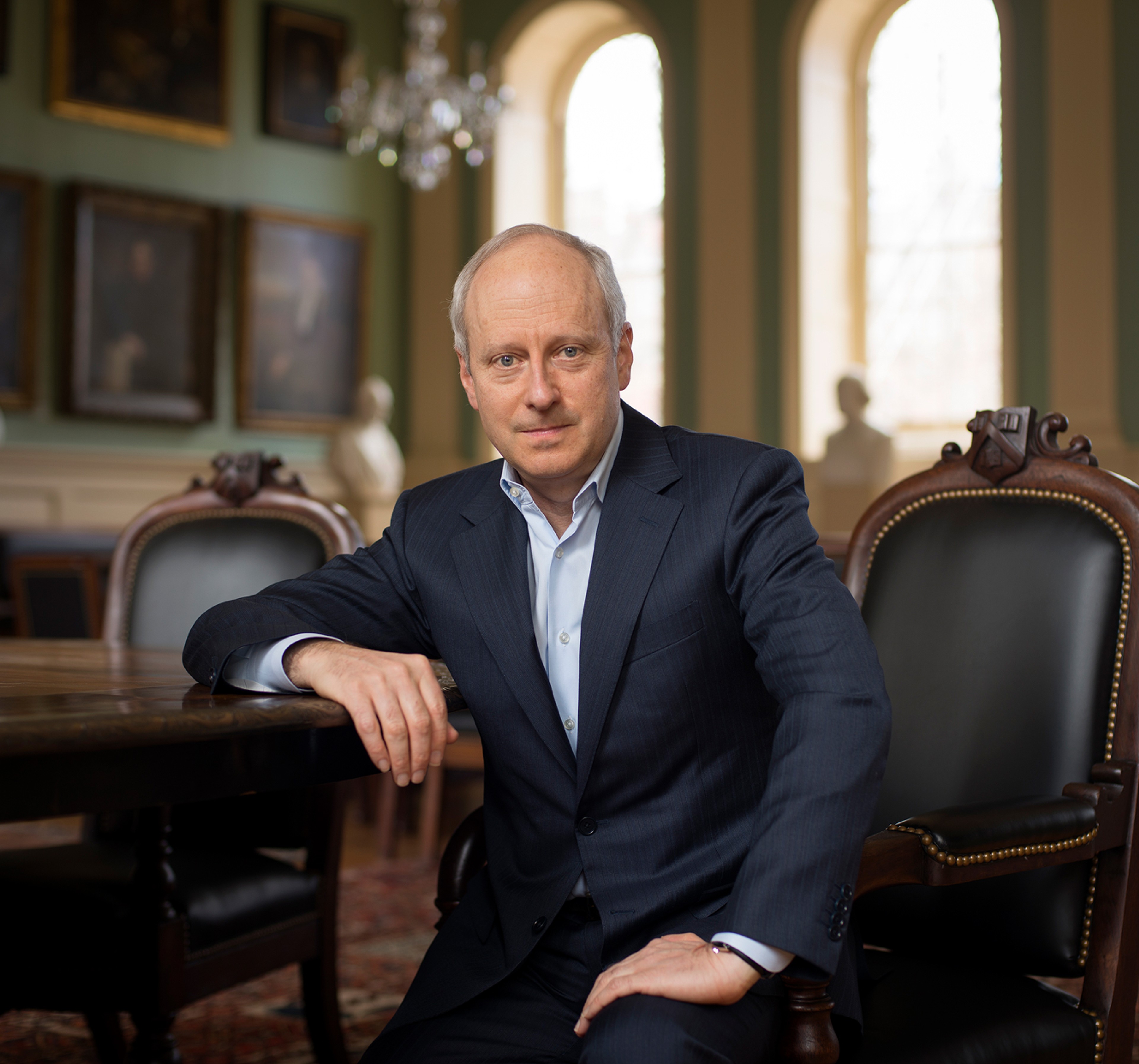
[LOS ANGELES, CA – October 14, 2025]
The Berggruen Institute today named political philosopher Michael Sandel as the 2025 Laureate of the Berggruen Prize for Philosophy & Culture. One of the world’s leading thinkers and public intellectuals, Sandel has had far-reaching impact from the U.S. and Europe to Asia and Latin America through his scholarship and teachings on justice, ethics, markets, and democracy. The $1 million award is given annually to individuals whose ideas have profoundly shaped human self-understanding and advancement in a rapidly changing world.
The impact and reach of his exploration of morality, dignity, and the common good within society and public discourse are unrivaled. “Professor Sandel’s work has left a profound mark on the global intellectual landscape,” said Yuk Hui, Chair of the Berggruen Prize Jury. “His critiques of neoliberalism, meritocratic ideology, and populism speak to the most urgent questions of our time,” he continued.
Throughout a decades-long career spent at Harvard University, Sandel has striven to reinvigorate political discourse and renew civic life by imbuing both with morality and virtue.
The arc of his philosophical interests bends from scholarly work on theories of justice early in his career to an increasingly urgent consideration of practical matters of politics, economics, and the need to reason together across our differences.
Along with thinkers like Alasdair MacIntyre and Charles Taylor, Sandel argues for the importance of community in shaping individual identity. In his earliest work, Liberalism and the Limits of Justice (1982), Sandel sympathetically criticized the version of liberalism advanced by John Rawls in A Theory of Justice (1971), according to which principles of justice and rights must be neutral on competing conceptions of the good life. Sandel argued that Rawls’s liberalism of neutrality relied on an implausible vision of the self as a free, “unencumbered” chooser. But for Sandel, any adequate account of justice must acknowledge that we are constituted by the histories and communities that situate us in the world.
He steadily developed this idea into his signature account of justice and the common good that culminated in Justice: What’s The Right Thing to Do? (2009), which reached an audience beyond the academy, selling more than 2 million copies. Calling for a morally engaged public discourse open to spiritual as well as secular moral argument, Sandel traced the history of ideas put forth by Aristotle, Jeremy Bentham, Immanuel Kant, and John Stuart Mill, and their application to matters like taxation, conscription, assisted suicide, surrogacy, reparations, patriotism, and more. This more capacious notion of public discourse is highly relevant today in light of widespread discontent with the hollow, often rancorous terms of moral and political debate.
In subsequent work, Sandel has shown how the excesses of market faith and meritocratic hubris fueled a growing divide between winners and losers. In What Money Can’t Buy (2012), Sandel offered a sustained critique of how market values have expanded into spheres of life once governed by non-market norms. Sandel asks two core questions: How free are the choices we make in the free market? And are there certain virtues and higher goods that markets do not honor and money cannot buy? If everything is for sale, he argues, markets can corrupt or crowd out the very social and moral ends they are meant to serve. In The Tyranny of Merit (2020), Sandel argued that the contemporary American form of meritocracy, while ostensibly rewarding talent and effort, has instead produced corrosive hubris, deep inequality, and growing populist resentments. Sandel calls for greater elite humility, a recognition of the importance of luck in life outcomes, and a broader social reorientation toward the “dignity of work.”
Sandel, the Anne T. and Robert M. Bass Professor of Government at Harvard, where he has taught since 1980, was born in Minneapolis, Minnesota. He graduated from Brandeis University in 1975 and received his doctorate in 1981 from Balliol College, Oxford, where he studied as a Rhodes Scholar under philosopher and inaugural Berggruen Prize Laureate Charles Taylor (2016). Sandel has been a visiting professor at the Sorbonne, and delivered the Tanner Lectures on Human Values at Oxford University, the BBC’s Reith Lectures, and the Kellogg Lecture on Jurisprudence at the U.S. Library of Congress. He was elected a Fellow of the American Academy of Arts and Sciences in 2002, and served on the U.S. President’s Council on Bioethics, a body charged with recommending national policy on the ethical use of new biomedical technologies. In 2018, he received Spain's Princess of Asturias Award for Social Sciences.
“Michael Sandel’s significant body of work is deserving of the Berggruen Institute’s lifetime achievement award recognizing intellectual thought of the highest caliber and global impact,” said Nicolas Berggruen, Chairman and Founder of the Berggruen Institute. “Given our world in flux, his illumination of what it means to be a good human and his infusion of ethics and reasoning into public discourse are necessary.”
Sandel, one of the foremost public philosophers of our time, has made a lifelong effort to engage broader, international audiences with his philosophical ideas. His books have been translated into more than 30 languages. His Harvard course “Justice,” one of the most popular in the university’s history, was its first to be made freely available online and on television, and has been viewed by more than 40 million people around the world.
In China, he has attracted a following reminiscent of John Dewey’s reception in the 1920s. Having lectured at more than a dozen Chinese universities, Sandel was named China’s “most influential foreign figure of the year” (China Newsweek, 2010). In Encountering China: Michael Sandel and Chinese Philosophy (2018), he engaged with some of the leading Chinese and Western scholars of Confucian and Daoist philosophy, exploring the affinities between his own view of justice and Eastern concerns with harmony as a necessary condition of human flourishing.
Sandel has also embodied his commitment to a global public philosophy by actively engaging philosophers and audiences worldwide – including his BBC series “The Global Philosopher,” which explores the ethical issues lying behind the headlines in video-linked discussions with participants from more than 40 countries. His in-person lectures have packed such venues at St. Paul’s Cathedral (London), the Sydney Opera House (Australia), the Delacorte Theater in New York’s Central Park, and an outdoor stadium in Seoul, South Korea, where 14,000 people came to hear him speak.
Michael Sandel was selected for the Berggruen Prize from among hundreds of nominees, including some of the world’s most renowned scholars and practitioners in the fields of philosophy, social science, economics, human rights, theoretical physics, literature, and beyond. As the ninth winner of the Prize, he joins an esteemed cohort of Berggruen Prize Laureates, including Patricia Hill Collins (2023), Kojin Karatani (2022), Peter Singer (2021), Paul Farmer (2020), Ruth Bader Ginsburg (2019), Martha C. Nussbaum (2018), Onora O’Neill (2017), and Charles Taylor (2016). Sandel will receive the Berggruen Prize for Philosophy and Culture in Spring 2026 at a celebration to be held in Cambridge, Massachusetts.
About the Berggruen Prize for Philosophy and Culture
Established by philanthropist Nicolas Berggruen in 2016, the Berggruen Prize for Philosophy and Culture was first awarded to Canadian philosopher Charles Taylor for his impact on the humanities, social sciences, and public affairs in deepening understanding among different intellectual traditions and civilization. Baroness O’Neill of Bengarve was the 2017 Berggruen Prize Laureate for her work as a citizen philosopher who has elevated the quality of public life and improved the very vocabulary of public discourse. In 2018, public and moral philosopher Martha C. Nussbaum received the award for her framework for thinking about human capabilities, and exploring vulnerability, fear, and anger in moral and political life. In 2019, Former Associate Justice Ginsburg was recognized for her life’s work in pioneering gender equality and strengthening the rule of law. During a year marked by the global pandemic, 2020, the Prize was awarded to Paul Farmer for his work advancing global public health equity. In 2021, utilitarian philosopher Peter Singer received the Prize for his ethical framework for animal rights, effective altruism, and the global eradication of poverty. The 2022 Berggruen Prize honored philosopher and literary critic Kojin Karatani for his radically original contributions to modern philosophy, the history of philosophy, and political thinking. In 2023, foundational sociologist Dr. Patricia Hill Collins was honored for her pivotal contributions to the understanding and development of intersectionality. This year’s Berggruen Prize Jury, chaired by Yuk Hui, is an international group of scholars and writers including Roger Ames, Antonio Damasio, Francis Fukuyama, Siri Hustvedt, Carlo Rovelli, and Elif Shafak. The Berggruen Institute administers the Prize and welcomes nominations of those whose ideas have both intellectual depth and long-term social and practical value across nations and cultures.
